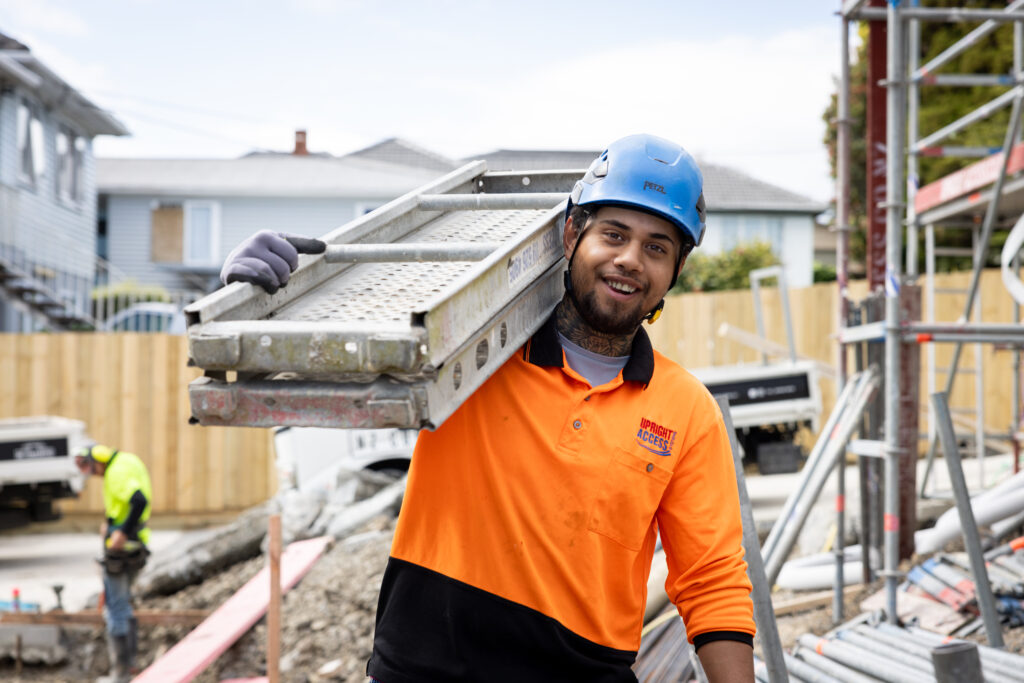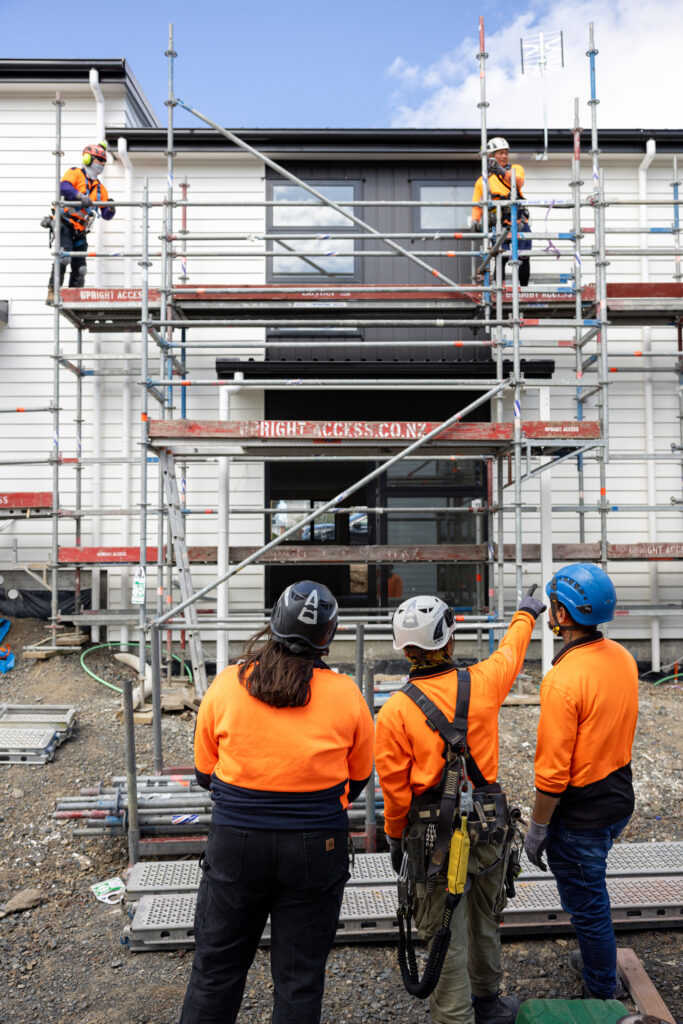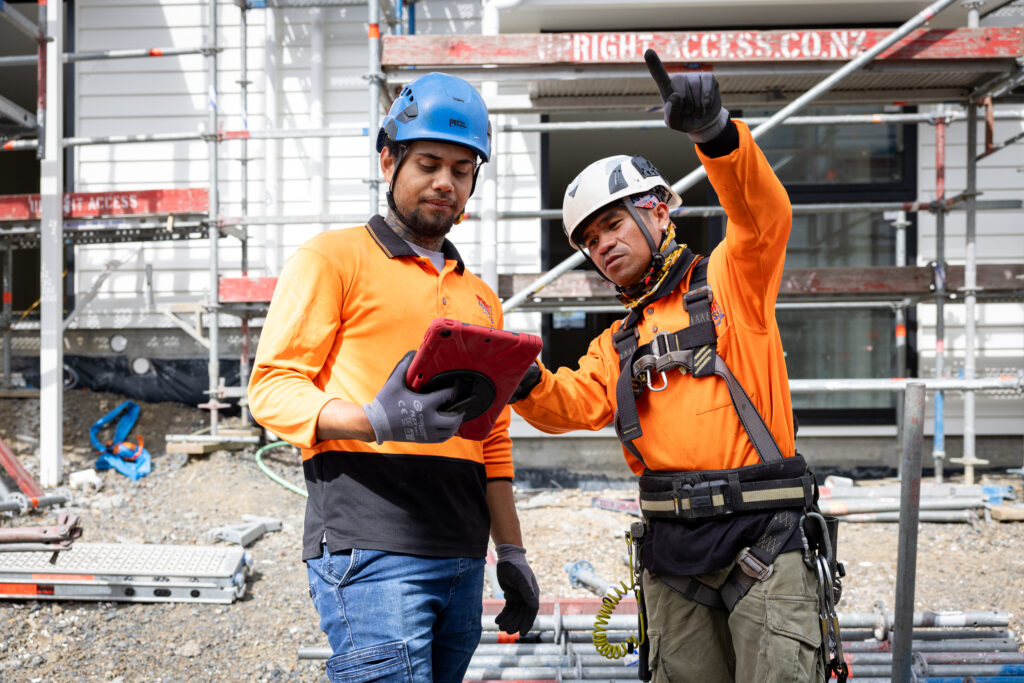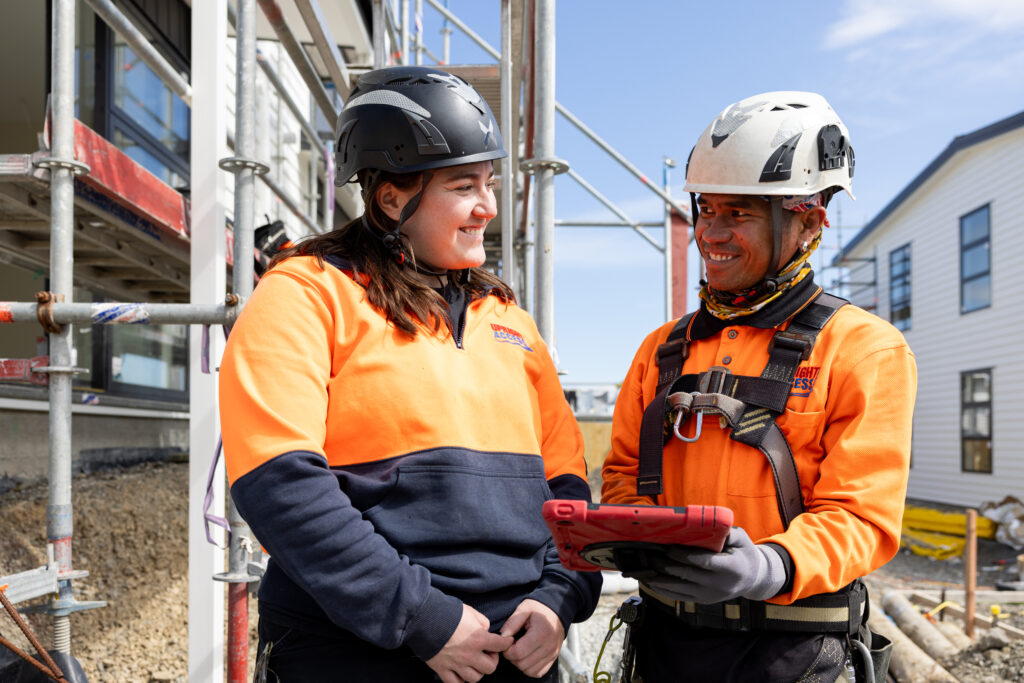What do scaffolders do?
Scaffolders are a vital part of any construction work, and there’s always work to be done! With a career in scaffolding you’ll be involved with a wide array of jobs, including transportation, planning and measuring, erecting and securing scaffolding, performing safety checks, and dismantling.
On any given day you could be:
- Building scaffolding and platforms for high-rise building constructions
- Working as part of a project team to get seating built at a raceway
- Installing edge protection a residential home for Roof repairs
- Building scaffolding for art installations and museums
- Erecting work platforms for reconstruction work in heritage buildings.











